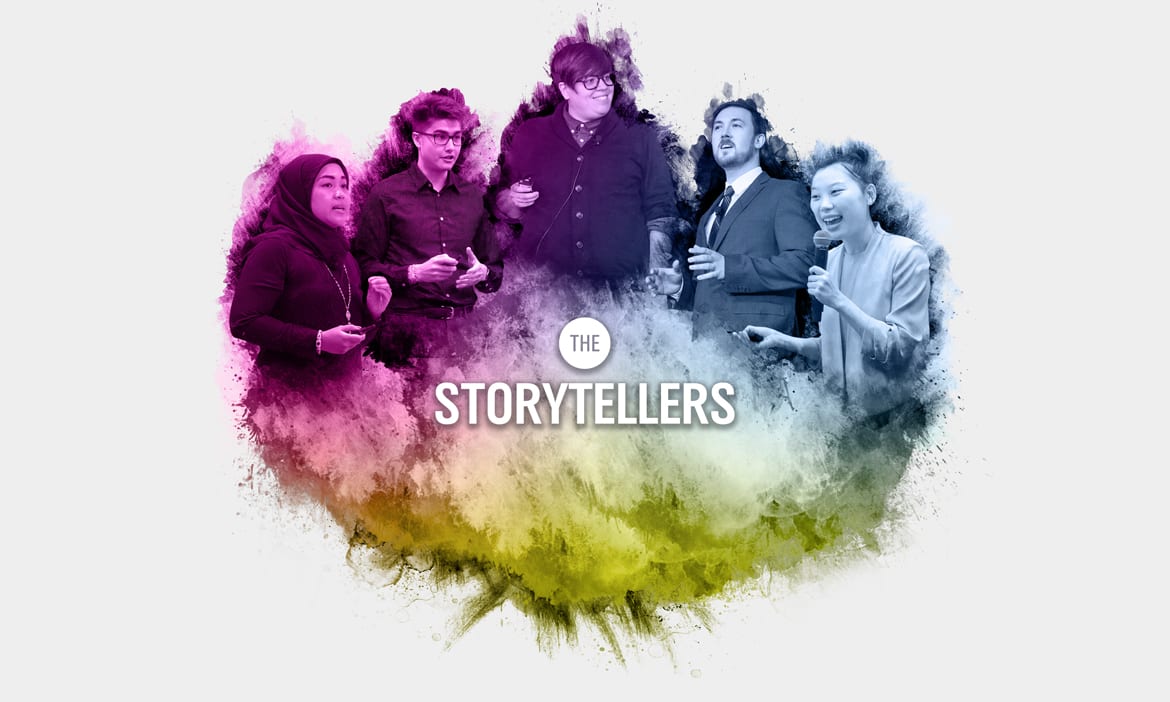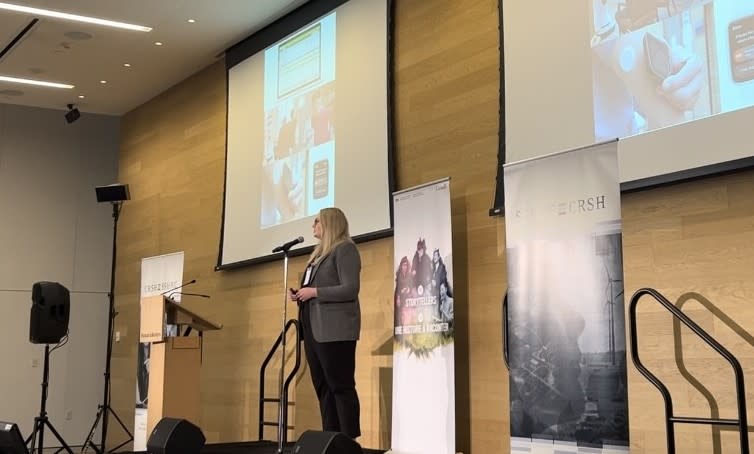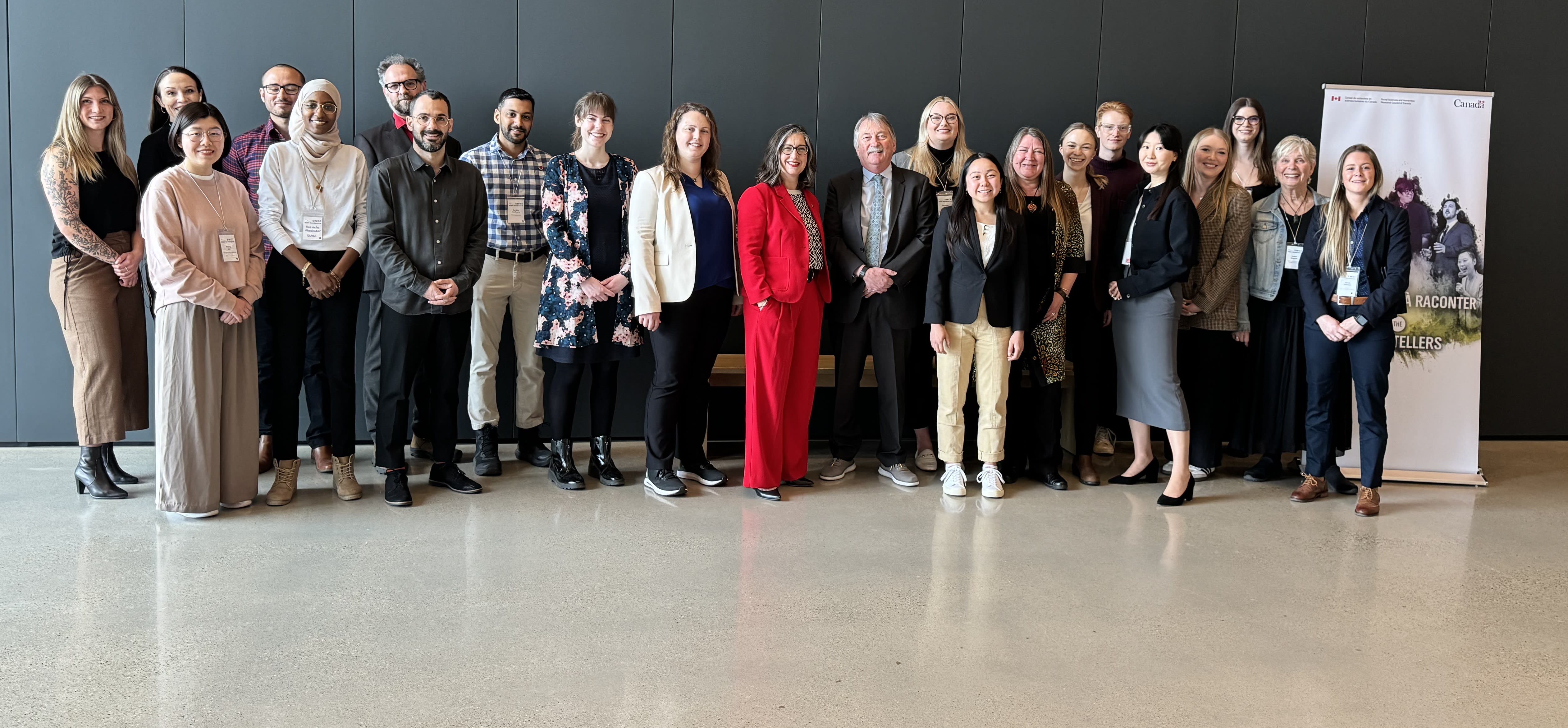Impactful research in long-term care: learning to tell the story

The Social Sciences and Humanities Research Council of Canada (SSHRC) Storytellers Challenge asks post-secondary students to show Canadians in a 3-minute video or 300 word text, how the research being conducted and funded impacts our lives and the world. The challenge consists of two phases, where students may choose to showcase their own SSHRC-funded research, or the work of a professor whose research has been funded by SSHRC.
My name is Danielle Cruise, and I am a PhD student in Management at the Telfer School of Management, specializing in Health Systems. My research examines the key factors that can affect and inform managers' decisions on new technologies in long-term care homes. In this research, a panel of 19 managers from long-term care homes from across Ontario participated in three survey rounds, where they identified that the following five factors were most important in influencing their decisions about new technologies:
- availability of funding
- impact on workload and efficiency
- ease of use
- value proposition
- and impact on residents’ outcomes.
This research is important for developing a tool that can be used by managers of long-term care homes that will enable informed decision-making on the right technology for the respective users.
Up for the challenge
I first heard about the SSHRC Storytellers Challenge through the newsletter sent out by the Telfer Research Office. My supervisor, Telfer professor Mirou Jaana, encouraged me to create a submission for the competition as she had received a SSHRC grant for a project titled “Information Technology Management Decision Making in Senior Care Organizations: A New Paradigm for a Post-COVID-19 Era”.
I wanted to participate in the Storytellers Challenge as I believe that the research we are conducting in the long-term care sector is important for generating policy change and facilitating the uptake of technology that can be used to provide better care to older adults. In addition, the Telfer School of Management offers a funding opportunity in support of a student’s participation in the competition. I applied for it and was awarded the $500 prize, which I used to hire a graphic designer to consult on the design and layout of the infographic.
Condensing and translating knowledge
In the first phase of the competition, students are asked to create a 3-minute video or 300-word text that showcases the relevance and impact of a SSHRC-funded project that is taking place at their post-secondary institution. I decided to develop an infographic that presents the research described above. I started by drafting the text and selecting potential images that could be used within my infographic. I also worked on this research in collaboration with Perley Health, Ottawa’s largest long-term care home, so I was able to go onsite to take pictures that represent the long-term care environment to include in my infographic.
While it was challenging to summarize my research in so few words, I found the experience to be very beneficial and meaningful. Professor Jaana was also very supportive throughout the process of creating the infographic, providing suggestions, feedback and comments that helped to improve my submission. It was a lot of work to create, edit, and revise my infographic; however, I feel that I am now better equipped to communicate my research with a wider audience after doing so. With the word limit of the infographic being so short, I had to carefully plan out what I was going to write so that I could identify the main point that I was trying to communicate. I was also able to practice writing succinctly by avoiding jargon and simplifying the academic language that I normally use. Storytelling is an important skill for graduate students to learn so that we can better explain the impacts of the important research that we are conducting.
After the first phase of the competition, 20 finalists were selected from post-secondary institutions across Canada based on how compelling, clear, and creative their submission was. My infographic was selected as one of 20 finalists out of over 200 entries submitted. Finalists such as myself received a $3,000 prize along with free registration to the Science Writers and Communicators of Canada Conference, where the next phase of the competition was set to take place.
The final performance
For the second phase of the competition, the 20 finalists from the first phase were asked to present their research in three minutes at the Storytellers Showcase. The Storytellers Showcase was held in Saskatoon, Saskatchewan during the Science Writers and Communicators of Canada Conference.
In preparation for the Showcase, the finalists had the opportunity to participate in a communications workshop. During the workshop, we learned tips and tricks for presenting our research to a non-academic audience and how to give an effective and compelling presentation. For example, the workshop facilitator suggested we use single images that cover the full presentation screen, as the audience would not have time to read any text given the short time limit of the presentation. We also learned a couple of ways to engage with a non-academic audience, including telling a story at the beginning of the presentation or asking the audience to imagine a scenario.

We then had the opportunity to attend practice sessions, where we were given feedback and ways that we could improve our presentation prior to the Showcase. The feedback included various strategies and tips, such as maintaining eye contact with the audience and smiling when it is appropriate to do so, using gestures and facial expressions to engage with the audience, and limiting the number of slides. This feedback was extremely valuable and helpful for improving my presentation.
Leading up to the Showcase, several social events were planned for the finalists, including the President’s Reception where we were hosted by Dr. Peter Stoicheff, President of the University of Saskatchewan, and his spouse Kathryn Warden, at the President’s Residence on the University of Saskatchewan campus. The reception was a wonderful way to celebrate and connect with the other finalists.
A rehearsal was held the day before the showcase, which helped to alleviate any anxiety I was feeling prior to the competition. We went through the timing and flow of the event, and what we should expect. We also had the opportunity to practice our presentations in front of the other finalists. It was reassuring to present in front of the finalists as everyone was very supportive and encouraging of each other’s work.
On the day of the Storytellers Showcase, each finalist had three minutes to present their research to a live audience of about 100 people with varying backgrounds (e.g., journalism, communications, professionals, the general public, etc.). A panel of judges scored each of the finalists and selected the five winners. While I was not selected as one of the top five, I did find the experience very rewarding as I had the chance to practice communicating the importance of my research to a non-specialist audience. It was also fun to hear about research that is being conducted outside of my field and how it applies to and can impact our lives.
Learning together
One of the lessons I learned during this phase in the competition is the importance of collaboration in research. We all have so much expertise and knowledge to share with each other and events like the Storytellers Challenge provide us with opportunities to learn new and complementary approaches to conducting research. As a student, working on a PhD can be a lonely journey as so much of our work is completed independently. Participating in this challenge helped to connect me with students from varying disciplines and is an experience that I will remember forever. The friendships and memories made during this competition will be helpful as I continue to navigate through the PhD program.

Overall, participating in the SSHRC Storytellers Challenge enabled me to see the impacts of my own research, and how it contributes to improving the care that is provided to older adults and the work of healthcare professionals. For students who are considering participating in the Storytellers Challenge, I highly recommend it as my experience has enriched my time in the PhD program. I know many graduate students may feel they are too busy to participate; however, I want to emphasize the value that participating in this challenge brings. The Storytellers Challenge helped to promote my research and allowed me to refine the content I was presenting, based on feedback I received throughout the entire process. Moving forward, my hope is that more students will participate in and benefit from the SSHRC Storytellers Challenge.
Finally, I wanted to thank SSHRC for hosting the Storytellers Challenge, allowing students across Canada to participate and share their research. I also want to thank the Telfer School of Management for funding my travel and accommodations while at the Storytellers Showcase in Saskatoon. The research showcased in my infographic was also part of my masters’ thesis work, which was conducted with Mirou Jaana, Telfer School of Management, Linda Garcia, Emeritus Professor and Founding Director Life Research Institute, and Danielle Sinden, Director of Centre of Excellence in Frailty-Informed Care, Perley Health.
 This article was written by Danielle Cruise, a PhD student in Management, specializing in Health Systems at the Telfer School of Management, University of Ottawa, under the supervision of Professor Mirou Jaana. Her research focuses on the adoption and implementation of health information technology solutions in long-term care homes. She hopes to use her research findings to develop initiatives that can help support digital transformation in the LTC sector.
This article was written by Danielle Cruise, a PhD student in Management, specializing in Health Systems at the Telfer School of Management, University of Ottawa, under the supervision of Professor Mirou Jaana. Her research focuses on the adoption and implementation of health information technology solutions in long-term care homes. She hopes to use her research findings to develop initiatives that can help support digital transformation in the LTC sector.